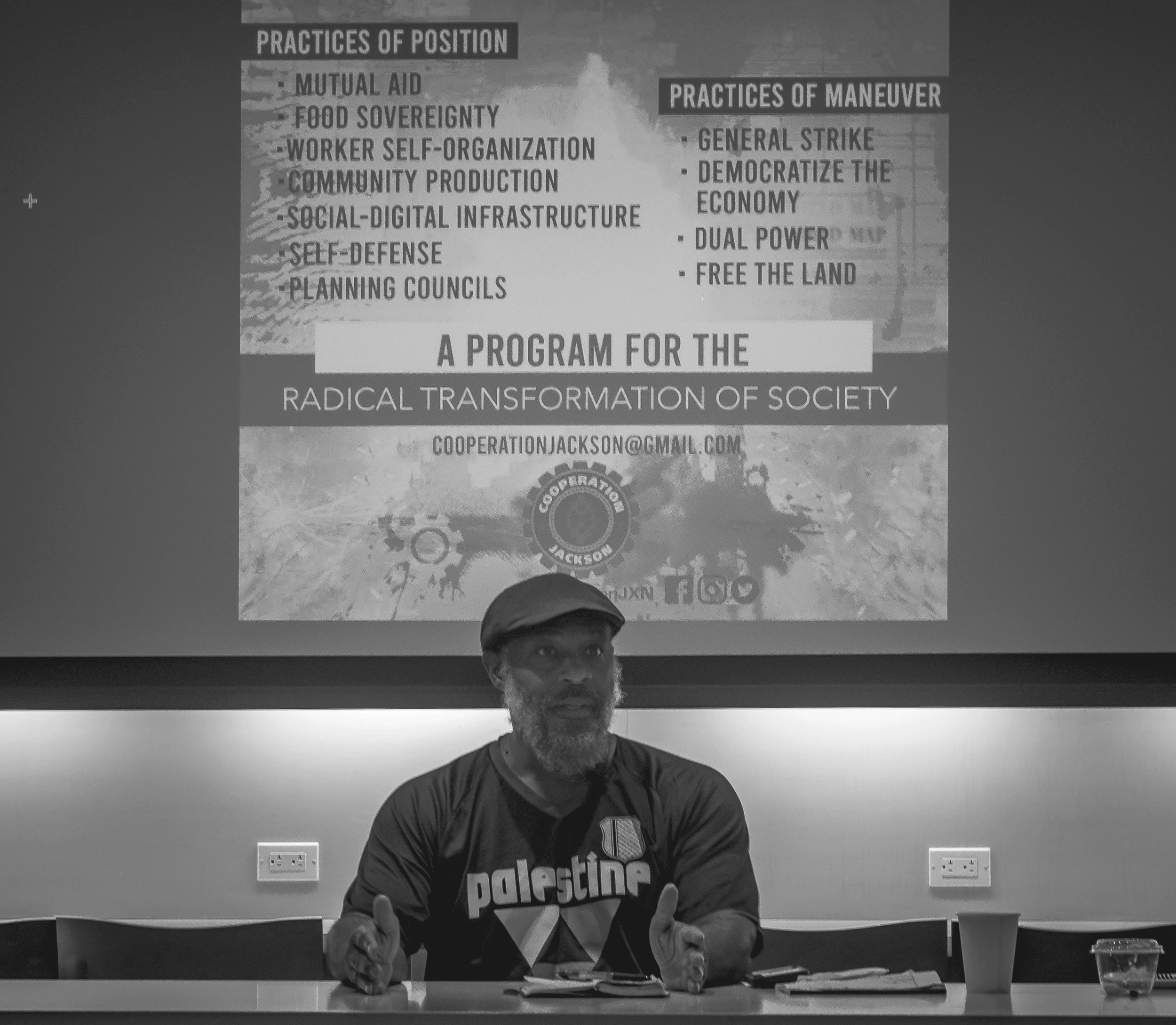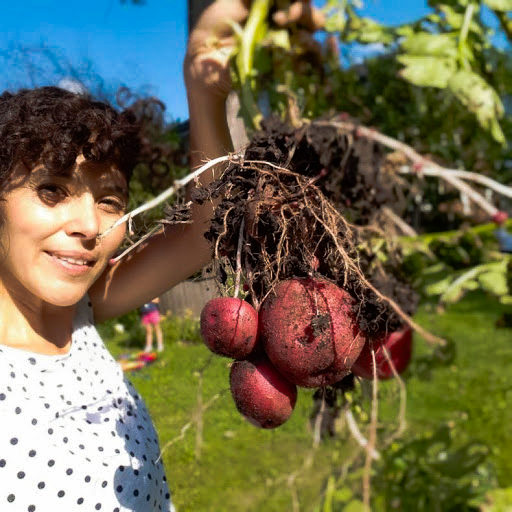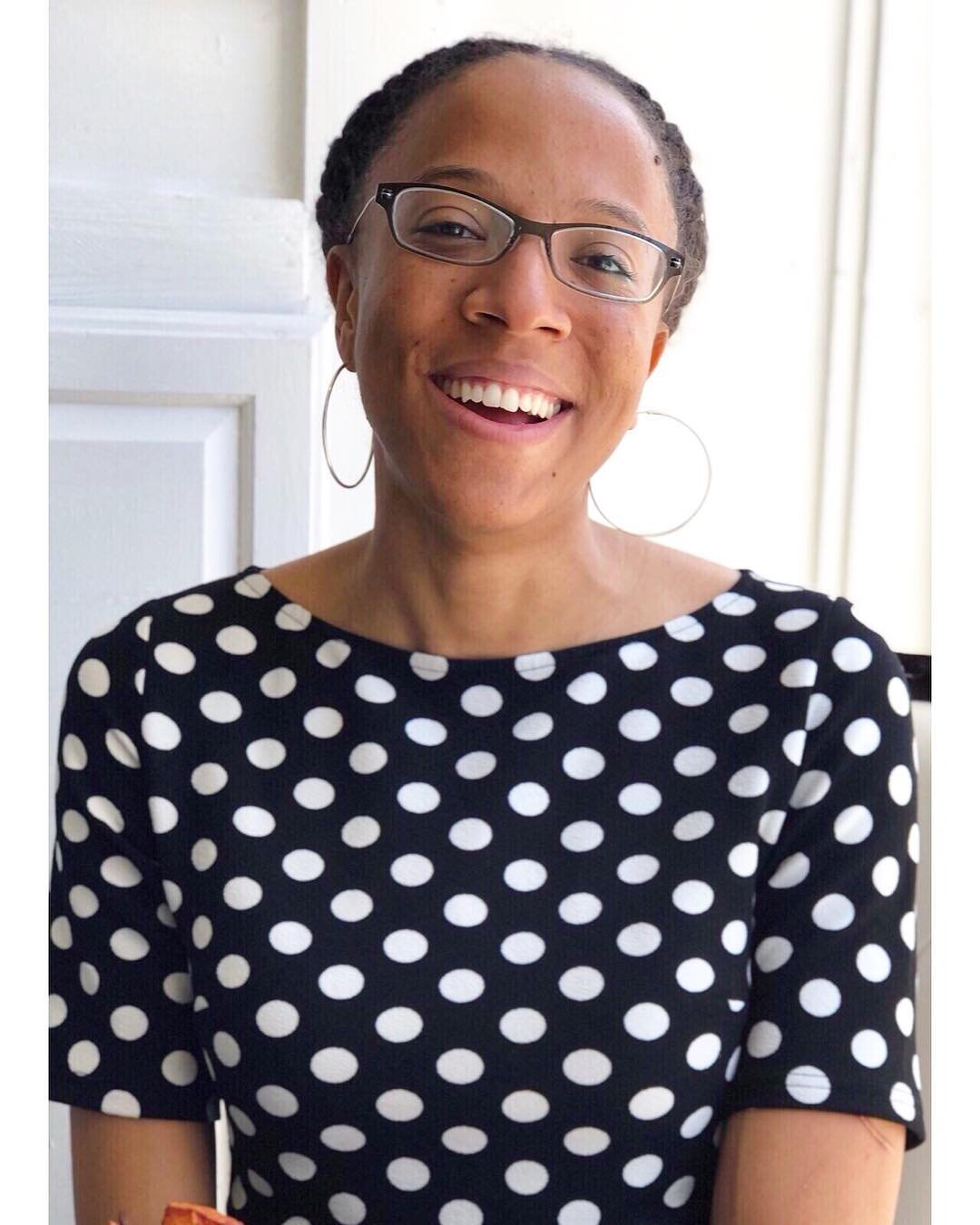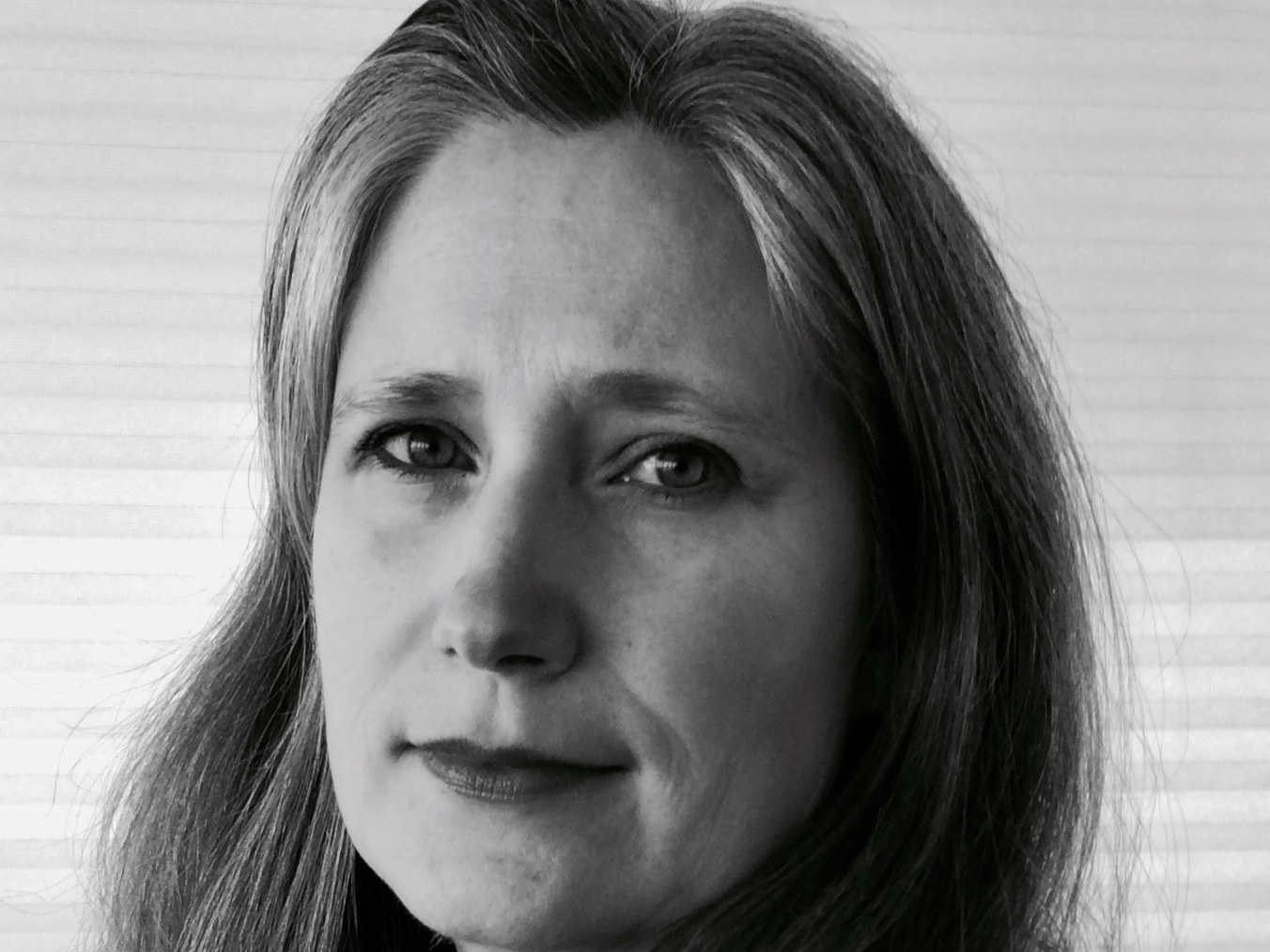Visiting scholars
2024-2025 VISITING SCHOLAR
Charlotte Sophia Bez
Starting September 2024, Charlotte Sophia Bez will be a Fulbright Visiting Scholar for a duration of 9 months with the Tishman Environment and Design Center. Based at the Tishman Center's Research Program, Charlotte’s Fulbright project, “Ex-Post Evaluation of Just Transition Policies'“ will be a collaborative effort with Drs. Ana Baptista and Yukyan Lam, along with several of the Center's environmental justice partner organizations. The objective of Charlotte’s project is to analyze air co-pollutants and other environmental health impacts related to prominent US climate policies with a focus on how low-income and People of Color communities will be affected. Charlotte's home institutions are the Potsdam Institute for Climate Impact Research (PIK), and the Mercator Research Institute on Global Commons and Climate Change (MCC), both located in Germany. She has a PhD in Economics from the Scuola Sant’Anna, Italy. In 2022, she was a visiting scholar at the Political Economy Research Institute (PERI) at the University of Massachusetts Amherst, USA, where she worked with Michael Ash and James Boyce.
2023-2024 visiting scholar
Kali Akuno
Kali Akuno is co-founder and co-director of Cooperation Jackson, a network of worker cooperatives and community-led programs that sustain and grow a democratic, just and sustainable economy in Jackson, MS. Among these programs is the Fannie Lou Hamer Community Land Trust, which allows community members to collectively steward the land and creates opportunities for affordable property ownership.
Kali served as the Director of Special Projects and External Funding in the Mayoral Administration of the late Chokwe Lumumba of Jackson, MS. His focus in this role was supporting cooperative development, the introduction of eco-friendly and carbon reduction methods of operation, and the promotion of human rights and international relations for the city.
Kali is co-editor of “Jackson Rising: the Struggle for Economic Democracy and Black Self-Determination in Jackson, MS,” and the author of numerous articles and pamphlets including the Jackson-Kush Plan: the Struggle for Black Self-Determination and Economic Democracy,” “Until We Win: Black Labor and Liberation in the Disposable Era,” “Operation Ghetto Storm: Every 28 Hours report,” and “Let Your Motto Be Resistance: A Handbook on Organizing New Afrikan and Oppressed Communities for Self-Defense”.
He has served as the Co-Director of the US Human Rights Network, the Executive Director of the Peoples’ Hurricane Relief Fund (PHRF) based in New Orleans, Louisiana after Hurricane Katrina. He was a co-founder of the School of Social Justice and Community Development (SSJCD), a public school serving the academic needs of low-income African American and Latino communities in Oakland, California.
2021 - 2022 Visiting Scholar
Michelle Martinez
Michelle Martinez is a Latina climate justice activist born and living in Waawiyatanong, traditional lands of the Anishnaabe, now known as Detroit. Since 2006, she has worked in local communities of color to build power to halt climate change, and the detrimental effects of pollution on our life and land. As a mother, and a gardener, she enjoys cultivating land with her kids, learning about power, spirit, and the complex soils and waters of the Great Lakes. She is the daughter to Misael Antonio Martinez, and Teresa Hernandez Acosta, who both love beaches, platanos, big blue skies, and family. Michelle hopes that we can re-learn, together, a new way of being that reconnects all of our relations for a more resilient climate future for all beings.
Michelle served as the Executive Director and Statewide Coordinator of Michigan Environmental Justice Coalition for the last 5 years leading campaigns on energy democracy and climate policy. In 2019 she helped organize the march to Make Detroit the Engine of the Green New Deal leading up to the Democratic National Debate. Over the last 15 years Michelle has also served in the role of organizer for democracy, immigration, human rights, abolition, racial and gender justice, and food sovereignty. She was a 2017 Equity Fellow at Wayne State University Law School’s Damon J. Keith Center for Civil Rights and received the Top 25 Latinx Leaders from the State of Michigan, Hispanic Latino Commission in 2019. She earned her MS in Environmental Policy from the University of Michigan School of Nature Resources and Environment, now SEAS in 2008. She is currently a Movement Leadership Fellow at CUNY’s School for Labor and Urban Studies.
2020-2021 Visiting Scholar
Timo Rissanen
Timo Rissanen is a newly appointed associate professor in fashion and textiles at the University of Technology Sydney (UTS). During his decade at Parsons School of Design, The New School, he was associate professor of fashion design and sustainability within the School of Fashion. He also served as the School Associate Dean of the School of Constructed Environments, and he was one of the Associate Directors of the Tishman Environment and Design Center. He was born in Finland and trained as a fashion designer at the UTS in Australia.
Rissanen completed a practice-based PhD on zero waste fashion design at UTS in 2013. As an artist he has focused on labour, politics and love through installation, performance and cross-stitched poetry. Rissanen co-curated Fashioning Now with Alison Gwilt in 2009 and Yield with Holly McQuillan in 2011, and he has co-published two books on fashion and sustainability, Shaping Sustainable Fashion with Gwilt in 2011 and Zero Waste Fashion Design with McQuillan in 2016. Rissanen is a founding member of the Union of Concerned Researchers in Fashion.
2019-2020 VISITING SCHOLARS
Ahmina Maxey
Ahmina Maxey is an organizer, facilitator, connector and advocate. She is committed to ensuring that grassroots leadership and expertise is valued and strengthened as we work for transformative and systemic change. Ahmina has many years of experience in local and national non-profits, helping provide organizing capacity-building, and financial resources to communities of color combating environmental racism. Her work has supported environmental justice (EJ) communities in Michigan, Maryland, California, Connecticut and other states across the country.
In Detroit she’s organized for air pollution reduction with groups such as the East Michigan Environmental Action Council, Zero Waste Detroit, and Global Alliance for Incinerator Alternatives. Ahmina lives in southwest Detroit, and in her free time enjoys spending time outdoors, reading, and hanging out with her niece and nephews. She is an active volunteer in Breathe Free Detroit and the Michigan EJ Coalition, and is a 2007 graduate of the University of Michigan, 2011 Green for all Fellow, 2014 recipient of the Sierra Club's Bunyan Bryant Environmental Justice Award, and was included on Grist's 2017 list of 50 emerging green leaders.
Stephanie Gripne
Ph.D., Founder and CEO, Impact Finance Center and Impact Finance Group, Inc.
As Founder and CEO of Impact Finance Center (IFC), Stephanie is the creative force behind several social enterprises designed to accelerate the impact investing movement and move $1T in investment capital into social ventures that do well by doing good: CO Impact Days, Impact Investing Institute, and Rocky Mountain Who’s Who & Impact Investing. Lauded by Forbes as “the Steve Jobs of impact investing”, Stephanie is continuously innovating IFC’s model, which serves as an accelerator for asset owners by identifying, educating, and activating philanthropists and investors who want to become impact investors. In just five years, Stephanie has positioned the State of Colorado as the leader in impact investing and the successful pilot for a National Impact Investing Marketplace. Early evaluation efforts of IFC’s work indicate that 260 direct impact investments totaling $260M have been completed.
A successful entrepreneur, academic, investment advisor, and impact investor, Stephanie’s vision is driven by 20 years of combined experience at the $100 million Eco Products Fund, the Nature Conservancy, the USDA Forest Service, DOE Oak Ridge National Laboratory, the Journal of Wildlife Management, and several universities. She received her Ph.D. from the Boone and Crockett Wildlife Conservation Program at the University of Montana, and has a B.S. in Biology & Wildlife Management from the University of Wisconsin at Stevens Point and a M.S. in Ecology from Utah State University. Stephanie is a Visiting Scholar at the Tishman Environment and Design Center at The New School in New York City; Aspen Institute Environment Forum Scholar; Environmental Leadership Senior Fellow; Property and Environment Research Center Fellow; Ford Foundation Community Forestry Fellow; Colorado Commission on Employee Ownership member; and a Colorado Boone and Crockett Professional Member.
2017-2018 VISITING SCHOLARS
Annie Ducmanis Adams
Ducmanis Adams will work with the Tishman Center in 2018 on the symposium, Disaster Relief and Equitable Recovery: Re-Evaluating Aid and Capitalism in an Era of Catastrophic Weather Events. The aim of the symposium is to forge connections between key stakeholders around current disaster preparedness, relief and recovery systems and identify ways to create more inclusive, bottom-up and decentralized approaches to recovery processes and bring together environmental justice communities from New York City, Puerto Rico, and the Gulf Coast with philanthropists, thought leaders, and impact investors from across the nation.
Prior to joining the Tishman Center, Ducmanis Adams was a founding member and project manager for the Gulf Coast Fund for Community Renewal and Ecological Health, a collaborative fund launched in the wake of Hurricane Katrina by funder networks and foundations engaged in critical environmental justice and civic engagement work that put leaders from frontline communities at the heart of the philanthropic response. Ducmanis Adams helped design and lead an innovative grassroots-led grantmaking process that distributed $5,000,000 in grants to over two hundred nonprofit organizations. She also engaged in critical work to build a network of Gulf Coast community leaders, connecting vital grassroots voices to one another, as well as to national organizations, media outlets, federal agencies, and philanthropists focused on work in the region.
For twenty years Ducmanis Adams has focused on work that incorporates environmental protection and sustainability with human rights, including work with national and international NGOs. Prior to the Gulf Coast Fund she worked with the Environmental Grantmakers Association, where she helped to found the Sustainability Funders Working Group. She holds a BA in Environmental Studies from Oberlin College and Masters of Public Administration from Columbia University’s School of International and Public Affairs, with a concentration in Sustainability and Energy Policy. In 2010 she received a Women in Conservation Award from the National Audubon Society for her work in the Gulf Coast.
Steven King
Steven King will join the Tishman Center to research sustainability and environmental justice focused service-learning curricula, aiming to produce replicable learning outcomes and a framework for a learning community that provides professional development support for educators.
Mr. King is the Founder and Principal of Global Sustainable Solutions (GSS). GSS is a global consulting firm founded on the principles of using a systems thinking approach to the practical application of sustainability. GSS provides strategic planning and operational support to educational institutions, non-profit organizations, private businesses and leaders in developing inclusive and sustainable social justice focused solutions.
Mr. King is also a founding member, former CEO, and School leader of the Barack Obama Green Charter High School, New Jersey’s first charter high school focused on sustainability. The school’s mission is to develop independent critical thinkers and leaders in the area of sustainable development. Prior to founding the Barack Obama Green Charter School, Mr. King served as a researcher and facilitator at the Global Labor Institute at Cornell University’s School of Industrial Labor Relations where his research focused on Green Jobs and the development of a Low Carbon Green Economy. This research lead him to work closely with national and international labor leaders strategizing emerging changes in the global workforce and economy in the use of sustainable practices. He also served as a co-program designer and facilitator for the Black Trade Union Leadership Program which focused on developing the leadership skill of local union leaders.
Steven A. King, holds a Bachelor of Arts from Pace University in Anthropology and a Masters of Arts from the New School University in International Affairs. He has a certificate from the Green Schools Leadership Institute and has presented at several conferences including the 2017 New Jersey Charter School Association where he was the Lead Panel Presenter for Educating for Sustainability.
Barbara Pace, O.B.E.
As a Visiting Scholar to the Tishman Center, Dr. Paca will focus on the theme of Environmental Justice as a Civil Right. Dr. Paca currently serves as Curator to Antigua & Barbuda’s inaugural National Pavilion at Venice Biennale 2018. Dr. Paca will link programs of this exhibit with New School colleagues and students to seminars in Venice during May 21-2 June and September 1-9.
Educated as a landscape architect and art historian (Ph.D. Princeton), Dr. Paca’s interests combine environmental justice and civil rights with the 30-year operation of a women-owned global landscape architectural firm to establish a new aesthetic, promoting the use of native plants, environmental conservation, historic preservation, accessibility, inclusion, and community building.
Dr. Paca is the author of Frank Walter, The Last Universal Man (2017); Ruth Starr Rose: Revelations of African American Life in Maryland and the World (2015); and the Frank Walter Catalogue, (2013), Art Basel, Miami Beach.
Mathy Stanislaus
Stanislaus joins the Tishman Center conducting research to advance circular economy policies and practices. Stanislaus will join the Tishman Center to develop a research agenda that identifies opportunities to align urban infrastructure, manufacturing practices, and state and municipal policies to advance practices that meet the goals of a circular economy.
As a long-term board member at the New York City Environmental Justice Alliance, Mathy Stanislaus assisted community-based organizations addressing environmental justice issues. He is a chemical engineer and environmental lawyer with over 20 years of experience in the private and public sectors. In 2009, President Barack Obama nominated Mr. Stanislaus as Assistant Administrator in EPA’s Office of Land and Emergency Management (OLEM). He was the longest serving person in that position. As Assistant Administrator for OLEM, Mr. Stanislaus led EPA’s programs that revitalize communities through the cleanup and redevelopment of contaminated sites under Superfund, Brownfields, and Resources Conservation and Recovery Act (RCRA) programs.
Stanislaus led the Agency’s efforts to support community-based actions to address environmental justice under Plan EJ 2014. He advanced President Obama’s Climate Action Plan by integrating series of climate change strategies into his office’s programs.
In addition, he served as chair of the Obama Administration’s Chemical Facility Safety and Security Working Group that led efforts to address the risks to communities – particularly low-income communities and communities of color – from chemical plant accidents where he led the first revisions to chemical plant safety in over two decades. Stanislaus also led the finalization of the Definition of Solid Waste rule and the national rule to safely manage coal ash disposal. He holds a JD from Chicago – Kent College of Law, Illinois Institute of Technology and a Bachelor’s of Engineering in Chemical Engineering from City College of New York. He was born in Sri Lanka and his family immigrated to this country to seek freedom and opportunity.
2016 - 2017 visiting scholars
Joann Kay Chase
Chase will join the Tishman Center during Earth Week at The New School, to curate and moderate one of the highlighted events: Ecology and Sovereignty: Native and Indigenous Perspectives Transcending Boundaries.
Prior to joining the Tishman Center, Chase was Director of the American Indian Environmental Office at the Environmental Protection Agency (EPA). She holds a BA from Boston University and a JD from University of New Mexico School of Law. A citizen of the Mandan, Hidatsa, and Arikara nations, Chase’s role at the EPA was managing and directing issues related to the American Indian Environmental Office. She provided national leadership, advice and assistance on Indian affairs throughout the agency and across the federal government.
Chase has been serving as a social justice advocate and innovative strategist committed to building a more inclusive democracy. Following nearly two decades of public policy work in Washington, D.C., she moved to New York City and launched her own consulting company, The Chase Group. She built upon her expertise in Indigenous rights to include efforts to move more philanthropic resources to social justice causes, promote environmental justice, advance efforts to promote and protect Native arts and culture and engage the Native voice in the media justice movement.
Chase has also served in a range of leadership positions from the Executive Director of the National Congress of American Indians, this country’s oldest and largest national Indian membership organization to serving as the Director of the National Network of Consultants to Grantmakers. She was also selected as the Special Rapporteur for the Indigenous Caucus at the World Conference Against Racism. She has appeared before the Committee on the Elimination of Racial Discrimination as an expert witness on Indigenous issues.
Massimo Bottura
Massimo Bottura, famed Italian restaurateur, joined the Tishman Environment and Design Center during the Spring 2017 semester as a Visiting Scholar. Bottura was the keynote speaker at the Zero Waste Food conference on April 28-29, 2017. Former Tishman Center Affiliated Faculty, Fabio Parasecoli collaborated with the Institute of Culinary Education to organize and curate the Zero Waste Food conference and will also moderate a special panel, Reimagining Sustainable Connections Within Food Chains at the conference.
The Zero Waste Food conference will focus on how we can discover better methods for the way we produce, distribute, consume and dispose of food in the environments where we cook and where we eat. The Conference will bridge the gap between research and practice, and draw upon the perspectives of academia, activism, food business, chefs and food producers in order to synthesize our shared goals and strategies to create a more sustainable food network in the 21st century.
Massimo opened Osteria Francescana in 1995 in his hometown of Modena, Italy. Over the past decade, he has become the leader of the contemporary Italian kitchen. In June 2016, Osteria Francescana was awarded the No. 1 position on The World’s 50 Best Restaurants list. Through his nonprofit, Food for Soul, he aims to empower communities to fight food waste through social inclusion. His goal is to encourage public, private and nonprofit organizations to create and sustain community kitchens around the world. Each project aims to bring a sense of dignity back to the table by promoting the values of art and beauty, encouraging solidarity within local communities and recovering food, places and people. The Refettorio initiatives he launched during the Milano Expo in 2015 and the Rio Olympics in 2016 reflect this approach, offering a relevant template in rethinking food distribution and consumption.
2015 - 2016 visiting scholars
Nicky Sheats, Esq.
Dr. Sheats, Esq., is the Director of the Center for the Urban Environment of the John S. Watson Institute for Public Policy at Thomas Edison State University and has defined the primary mission of the Center as providing support for the environmental justice (EJ) community on both a state and national level. Dr. Sheats holds his BA in Economics from Princeton University, a MA in Public Policy from Harvard University, a JD from Harvard Law School, and a PhD from Harvard University in Earth and Planetary Science.
Dr. Sheats is a founding member of the NJ EJ Alliance, the EJ Leadership Forum on Climate Change and the EJ and Science Initiative. He has been appointed to several federal and state advisory councils including the EPA’s National EJ Advisory Council, the EPA’s Clean Air Act Advisory Committee and the New Jersey Clean Air Council.
Dr. Sheats wrote the white paper Achieving Emissions Reductions for Environmental Justice Communities Through Climate Change Mitigation Policy as a Visiting Scholar at the Tishman Center. His white paper discusses the need for air pollution emissions reductions in environmental justice communities and offers a mechanism to achieve them through climate change mitigation policy. The paper also takes a critical look at these issues in relation to carbon trading and the CPP Rule.
Cecilia Martinez
Dr. Martinez is the Co-Founder and Director of Research Programs at the Center for Earth, Energy and Democracy (CEED). Dr. Martinez has led a variety of projects to address sustainable development at the local and international levels. Her research is focused on the development of energy and environmental strategies that promote equitable and sustainable policies. Dr. Martinez holds a BA from Stanford University and a PhD in Urban Planning from the University of Delaware.
This paper identifies the ways in which existing energy planning strategies are inequitable and illustrates a need for integrating environmental justice communities into renewable energy strategies. By highlighting issues of inequity in energy planning from an economic perspective, this paper articulates the importance for considering energy infrastructure transformation at the community level.
Dr. Martinez wrote the white paper Environmental Justice and The Clean Power Plan: The Case of Energy Efficiency as a Visiting Scholar at the Tishman Center. Her white paper identifies the ways in which existing energy planning strategies are inequitable and illustrates a need for integrating environmental justice communities into renewable energy strategies. By highlighting issues of inequity in energy planning from an economic perspective, this paper articulates the importance for considering energy infrastructure transformation at the community level.














